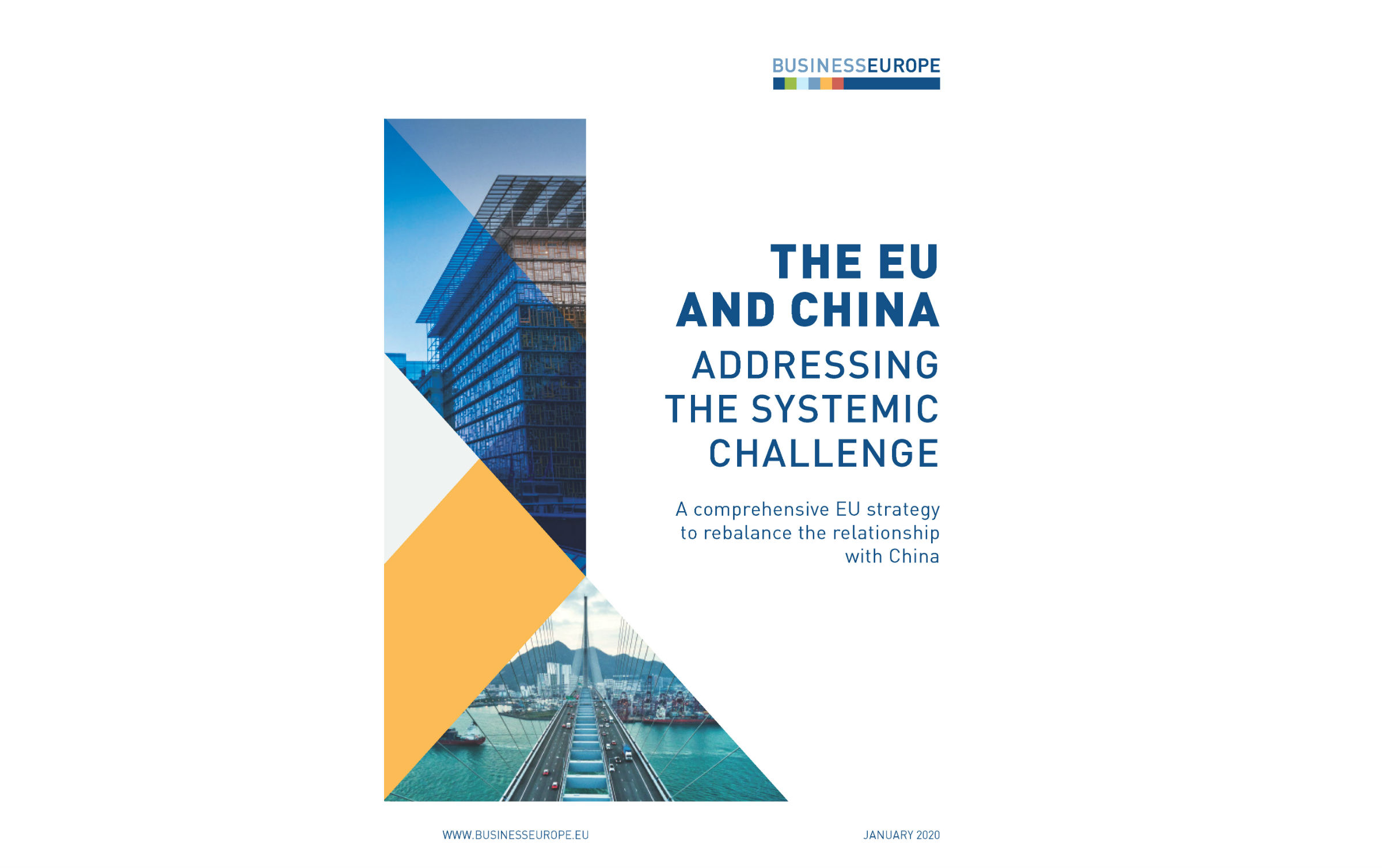Systemic challenge and market-distorting practices must be addressed
Today, BusinessEurope published its key strategy paper on the EU’s economic relationship with China. European business wants to build a stronger and fairer economic relationship, but systemic challenges prevent European companies from untapping this economic potential. The obstacles created by China’s state-led economy lead to market distortions in China, in the EU and in third countries. We call on the EU to reconsider how it engages with China, so that it can seize the opportunities and mitigate the distortions and challenges created by China’s state-led economy.
BusinessEurope President Pierre Gattaz said:
“China and Europe have benefited tremendously from China’s accession to the WTO in 2001. But in recent years, the consolidation of China’s state-led economy over market-oriented reforms and the difficulty in achieving much-needed WTO reform have led to an imbalance in the global level playing field.”
BusinessEurope Director General Markus J. Beyrer said:
“There is today a renewed sense of urgency among the European business community: the systemic challenge posed by China’s market-distorting practices cannot remain unaddressed. The EU should rethink how it engages with China, with a view to securing a stronger and fairer economic relationship and levelling the playing field.”
In order to rebalance the economic relationship towards a stronger and fairer one, BusinessEurope advances four key objectives for the EU to pursue:
- Secure a level playing field between China and the EU;
- Mitigate the impact of China’s government-induced market distortions;
- Reinforce the EU’s own competitiveness;
- Ensure fair competition and cooperation on third markets.
To achieve these four objectives, the paper lists 130 recommendations to authorities in the EU and its Member States.
Read our strategy on rebalancing the EU-China relationship here.
Read also the executive summary in English here, in Chinese (Mandarin) here.









